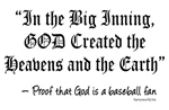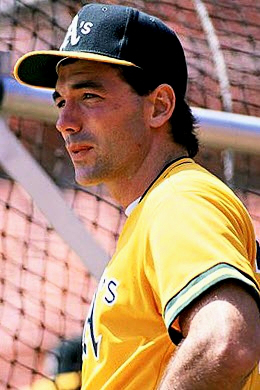The Moss trade is a simple salary dump, as they netted an infielder in Joe Wendle who can be useful down the road, but will not replace the value of Moss, or of any everyday player for that matter. The trade of Samardijia brought back a player that could be the team's every day SS in Marcus Semien and a catcher in Josh Phegley, who despite being a former first round pick and the fact that he has put up good minor league numbers- has not hit for a high average at the major league level in limited duty. Because of this, neither player is a given for the Athletics. Even in the Donaldson trade, the team failed to net a player who has been considered a top prospect, at least not yet. Kendall Graveman, a 2012 Blue Jays draft pick included in the deal, had a fast rise from A ball to the Major Leagues, but is not a strike out pitcher. Time will tell if these deals help the Athletics down the road, but already more people than not are assuming that these trades will benefit the team down the road, if not right away.
As in the past, the short term prognosis is the fact that the Blue Jays, Indians and White Sox have all gotten better at the expense of the Athletics. As we know, this is not something new. Just three off seasons ago, the Athletics traded Gio Gonzalez to Washington, Andrew Bailey to Boston and Trevor Cahill to Arizona. Gonzalez has pitched very well for the Nats, but Bailey and Cahill were complete busts for their new teams. Perhaps for the Athletics in this instance, you can say- "two out of three ain't bad."
The moneyball movie was based off the decisions to let free agents Jason Giambi, Johnny Damon and Jason Isringhausen walk as free agents. Eventually, two of the team's stud starting pitchers, Tim Hudson and Mark Mulder, were dealt themselves- Hudson to the Braves for Juan Cruz, Dan Meyer and Charles Thomas- the three combined worth nothing close to the value of Hudson and Mulder to the Cardinals for Daric Barton, Kiko Calero and Dan Haren. One of the best trades made by Beane and one of the best trades perhaps in the recent history of baseball was made involving Haren and the Athletics. He was sent with RHP Connor Robertson (David's brother) to the Diamondbacks in exchange for Chris Carter (who has hit 30 HR for the Astros), Carlos Gonzalez, Brett Anderson, Dana Eveland and Greg Smith. Now, Anderson has struggled to stay healthy, but to net both Carter and Gonzalez... plus, for Haren was a fantastic trade.
The debate will continue over whether this is the way to run a baseball team. Billy Beane, because of the fact that he holds his position, has the right to run his ball club the way he wishes. I am not here to tell him how he should do it. I admit that I was proven wrong the last time. The Athletics of 2012-2014 are a testament to what Beane, the rest of the front office and Bob Melvin have done and they deserve all the credit in the world for the success they have had. However, the 2012 Athletics in particular were as improbable a story as possible- even more than the 2002 team that the movie is based off of. To this point, I cannot knock something that has worked. The question is, will it work again in 2015? Or has Billy Beane finally bitten off more than he can chew?
The name "Athletics" in baseball has been synonymous with the term "firesale", or at the very least have been making other teams better for a series of years. In fact, the Oakland version has become the forth or the forth and fifth generation of volunteering to move its talent for the sake of having another organization pay them the money they have earned. The Oakland Athletics of the 1970s won three straight World Series Championships and another AL West title before the combination of escalating players salaries and free agency led owner Charlie Finley to dismantle his team. And because of that, teams like the Yankees, Angels and even the Giants and Padres became better and more competitive because of it.
All you have to do is go to the 1950s and 1960s to see how much the Kansas City Athletics acted as if they were the New York Yankees farm club. In a series of trades that really started in 1957, the Athletics would ship solid talent to the Yankees in exchange for Yankees that were on the decline and unproven minor leaguers. In some cases, if the unproven minor leaguers became solid MLB players with Kansas City, they would be traded back to the Yankees! In February of 1957, the Yankees acquired themselves Art Ditmar and Clete Boyer for a nearly washed up Billy Hunter and Irv Noren, who went from being a solid platoon player to a guy who was strictly a bench guy. Noren's production was never the same after he left the Yankees. Four months later, the Yankees were traded Ryne Duren for a fringe pitcher by the name of Ralph Terry, who went to Kansas City along with a declining Billy Martin. In May of 1959, the Yankees reacquired Terry and also added Hector Lopez in exchange for a declining Johnny Kucks and a young reserve infielder by the name of Jerry Lumpe (a guest on the Passed Ball Show, RIP). Jerry would have some success with Kansas City and made the AL All Star team with the Tigers in 1964. 6 months later, the Yankees added Roger Maris for the unproven Norm Siebern as well as has beens in Don Larsen and Hank Bauer. In May of 1960, the Yankees topped it off by adding Bob Cerv, originally a Yankee sent to Kansas City, in a deal for Andy Carey.
One of the most successful early AL teams was the Philadelphia Athletics, managed by Connie Mack. They won the World Series in 1910, 1911 and 1913 and lost in 1914 in one of the bigger upsets in World Series history- to the Boston Braves. By the end of the 1915 season, Eddie Collins, Homerun Baker, Jack Barry, Eddie Plank, Chief Bender and Herb Pennock were all gone. Mack had sent them all packing to keep costs down.
The Athletics would build up another series of great players in 1929 and would set off a great run that would last through 1932. Jimmie Foxx, Al Simmons, Mickey Cochrane, Lefty Grove, George Earnshaw and Rube Wallberg. By 1935, only Foxx remained. After 1935, Foxx too was out- on his way to Boston.
I laugh at the bad reputation the now Miami Marlins have in baseball today. Yes, they won a World Series in 1997, then dismantled the team within a year. They won the World Series in 2003 and by 2007 had broken up the team. A talented but underachieving team in 2012 was gutted by the beginning of the next season. What the Marlins as a franchise have done is nothing like what the Philadelphia, Kansas City and Oakland Athletics have done to their team, players and fans. Of course, its all a coincidence as Connie Mack has nothing to do with Charlie Finley and neither of them have anything to do with Billy Beane or Lew Wolf. The one thing that remains in common is the name "Athletics," which must mean in another language "give away my best players for nothing." Because they have been doing that for almost 100 years!


 RSS Feed
RSS Feed
